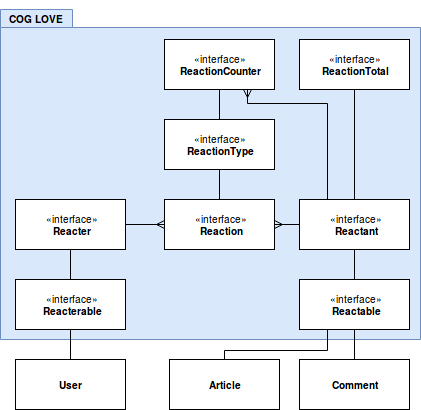Laravel Love is emotional part of the application. It let people express how they feel about the content. Make any model reactable in a minutes!
There are many implementations in modern applications:
- GitHub Reactions
- Facebook Reactions
- YouTube Likes
- Slack Reactions
- Reddit Votes
- Medium Claps
This package developed in mind that it should cover all the possible use cases and be viable in enterprise applications.
Documentation can be found in Laravel Love Guide.
Pull in the package through Composer.
$ composer require cybercog/laravel-loveRun database migrations.
$ php artisan migratePlease see UPGRADING for detailed upgrade instructions.
Laravel Lovepackage is open-sourced software licensed under the MIT license by Anton Komarev.Devillogo image licensed under Creative Commons 3.0 by YuguDesign.
CyberCog is a Social Unity of enthusiasts. Research the best solutions in product & software development is our passion.










